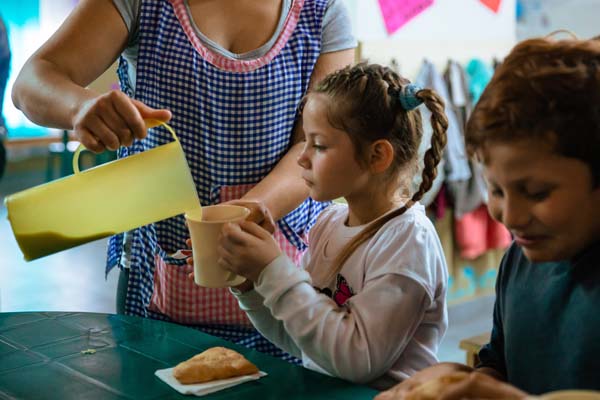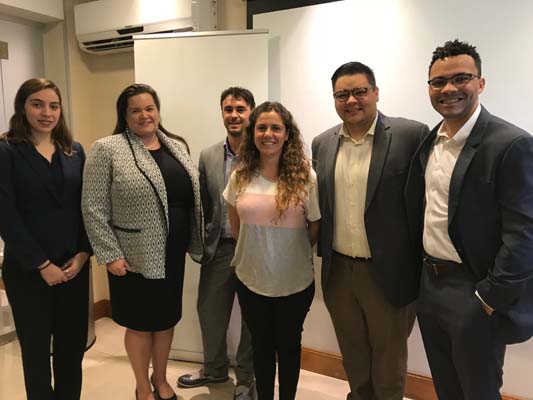
Argentine NGO Banco de Alimentos enlists an army of volunteers to transport food donations to soup kitchens that feed hungry adults and children across Buenos Aires.
Banco de Alimentos serves the poor of Buenos Aires by collecting and distributing food donations to more than 900 soup kitchens across the metropolitan region, but deploying the organization’s army of nearly 6,000 volunteers had become an increasingly difficult challenge.
To help develop a strategy for better managing its volunteers, Banco de Alimentos turned to the Freeman School and a team of second-year MBA students, who analyzed the organization’s operations and proposed recommendations to help it make the most of its unpaid workers.
“It was really exciting to know that the research we did was relevant and was going to be utilized,” said Sesa Leavoy (MBA ’19), who worked on the project. “The feedback was really positive for our group.”
The consulting project was part of the course Global Leadership III, which for the last eight years has connected Freeman MBA students with Latin American NGOs in need of consulting services. The students spent the first eight weeks of the course communicating with the clients via Skype and email. In October, the class traveled to Buenos Aires to meet their clients in person and present their recommendations.
“It’s a win-win for everyone involved,” said Eduardo Guzman, lecturer in management and instructor in the course. “The MBA students get an international consulting experience and the opportunity to work with an NGO, which I think really appeals to them. For the NGOs, this may be their only opportunity to receive consulting services because most don’t have the resources to hire consultants.”

Participants in the Banco de Alimentos consulting project included Yasamin Asgari (MBA ’19), Sesa Leavoy (MBA ’19), Paul Faciane (MBA ’19), Banco de Alimentos’ Solange Basso, Teddy McCullough (MBA ’19) and Devin Francis (MBA ’19).
Banco de Alimentos initially told its student team it needed more volunteers, but Leavoy and her teammates — Yasamin Asgari, Devin Francis, Paul Faciane and Teddy McCullough — convinced the organization to focus instead on recruiting the right volunteers. Through a partnership with supermarket chain Carrefour, Banco de Alimentos had recently begun transporting food donations from supermarkets directly to soup kitchens across Buenos Aires, a logistical challenge due to the highly perishable nature of the donations. The MBAs encouraged Banco de Alimentos to focus its recruiting efforts not on volunteers in general but specifically on drivers able to transport donations at short notice.
“You’d rather have 10 of the right people than 100 of the wrong people, so we gave them a high-level strategy for how to recruit the right people,” Leavoy said. “One of the things they were concerned about was making sure that their drivers felt like they were part of their volunteer community since they weren’t going to be working in the building, so we talked to them about an orientation specifically for drivers and other ways to help them get that sense of belonging and sense of the impact they’re making.”
In addition to Banco de Alimento, the class worked with three other NGOs: Comunidad Huerta, a network of organic produce farmers; Gestiones Solidarias, a workforce training organization that serves marginalized populations; and REDBdA, an alliance of food banks. Guzman said all the clients were happy with the projects, and most have already begun to put the students’ recommendations into practice.
“It’s very satisfying to see that some of the solutions we offered are already being implemented,” said Kathy Rai (MBA ’19), whose team worked with Comunidad Huerta. “It feels great to know we made a little impact for the business.”
Leavoy echoed that thought. “If we can help Banco de Alimentos retain more volunteers than they would have before we did this project, we’re helping more people get fed,” she said. “For me, that’s a significant win.”
